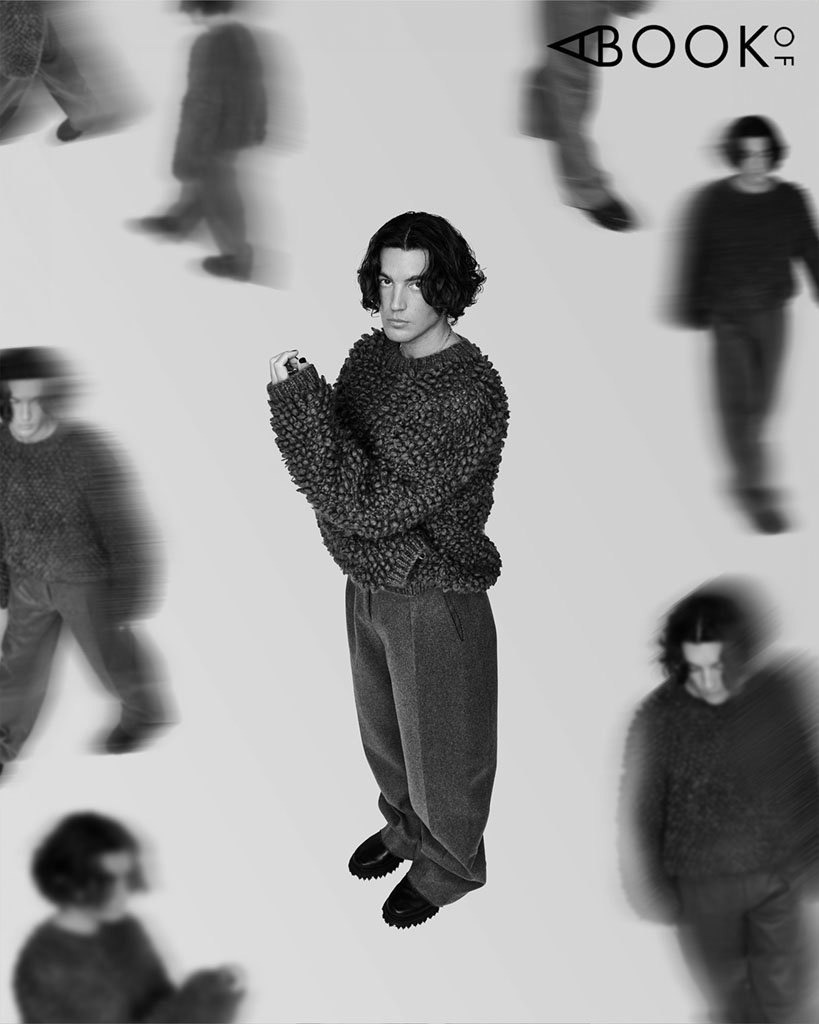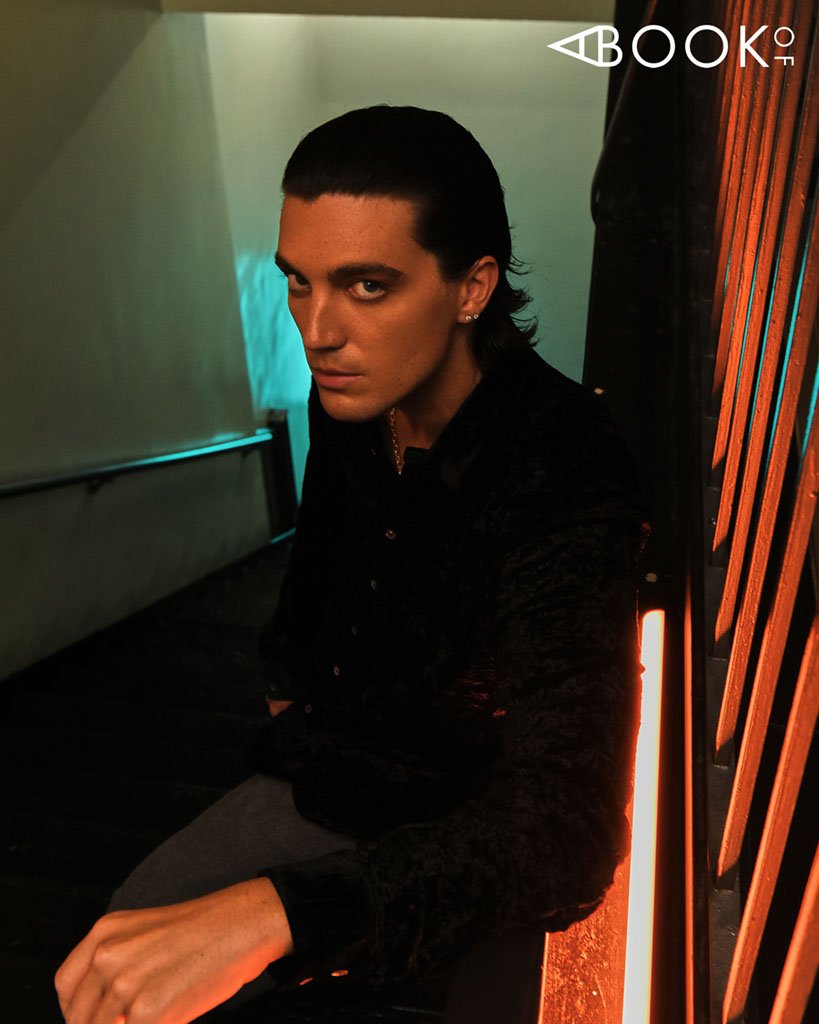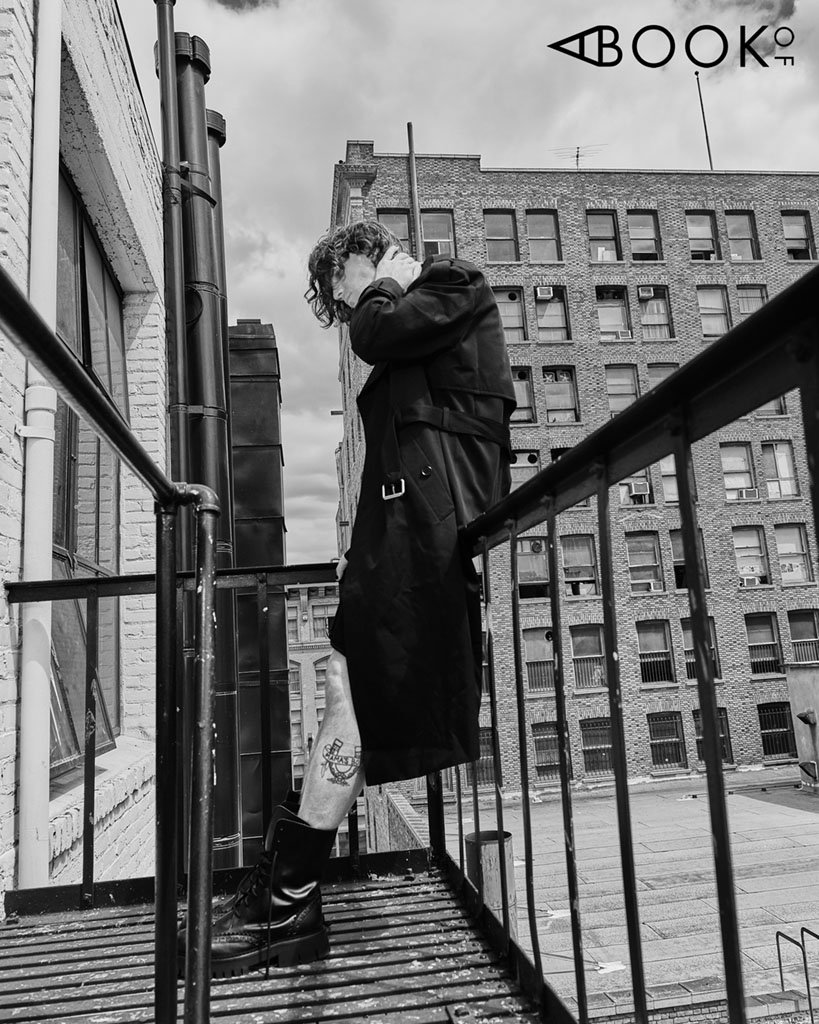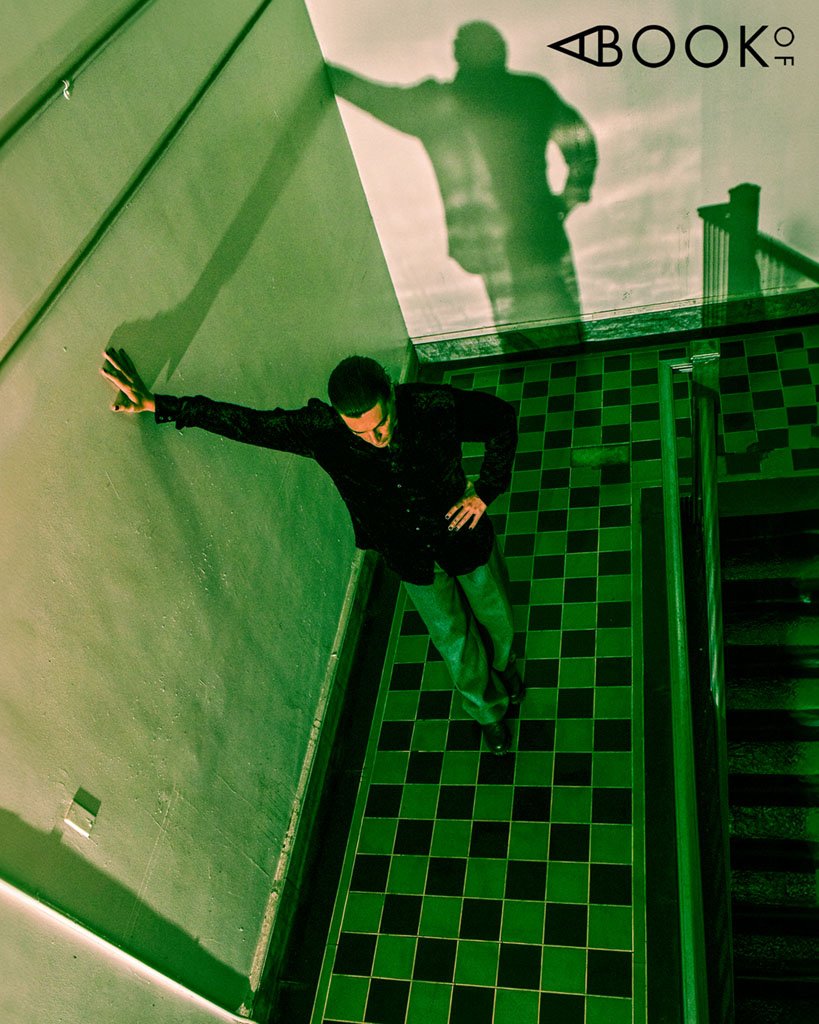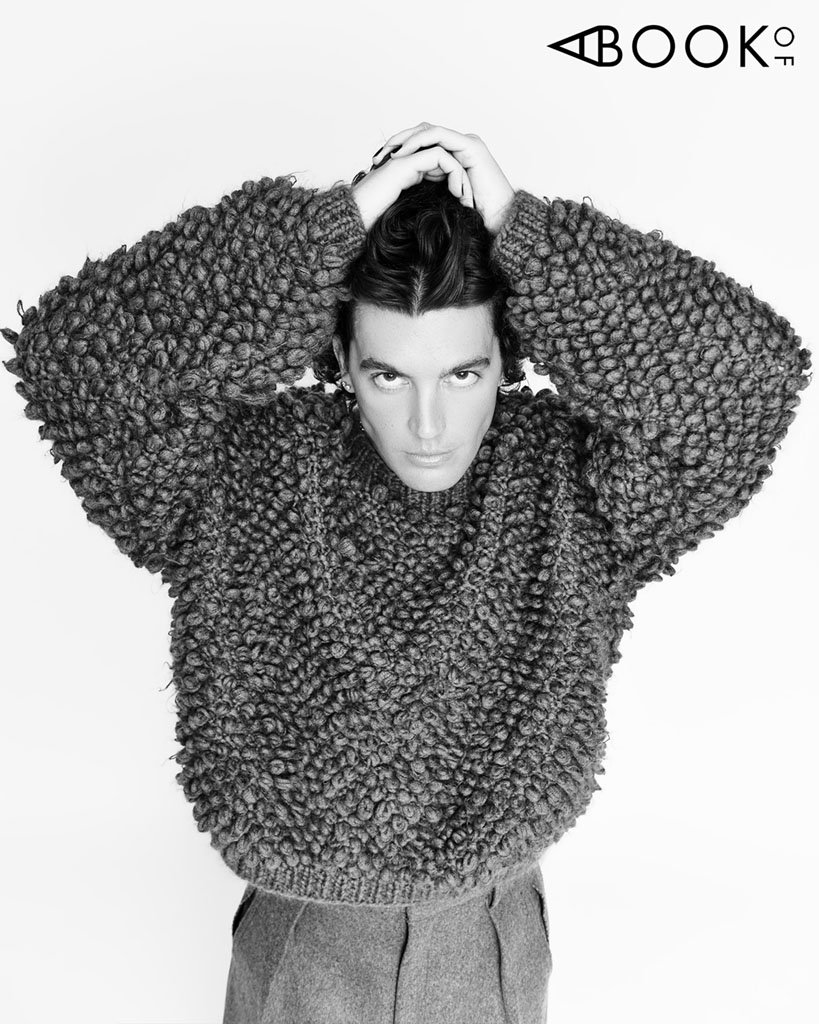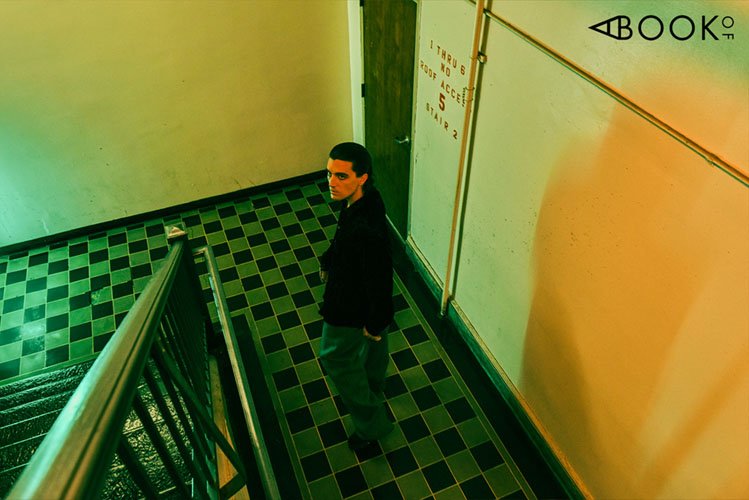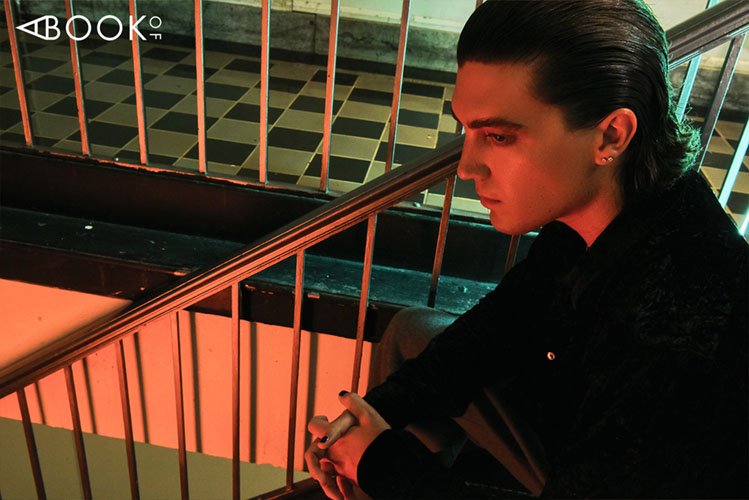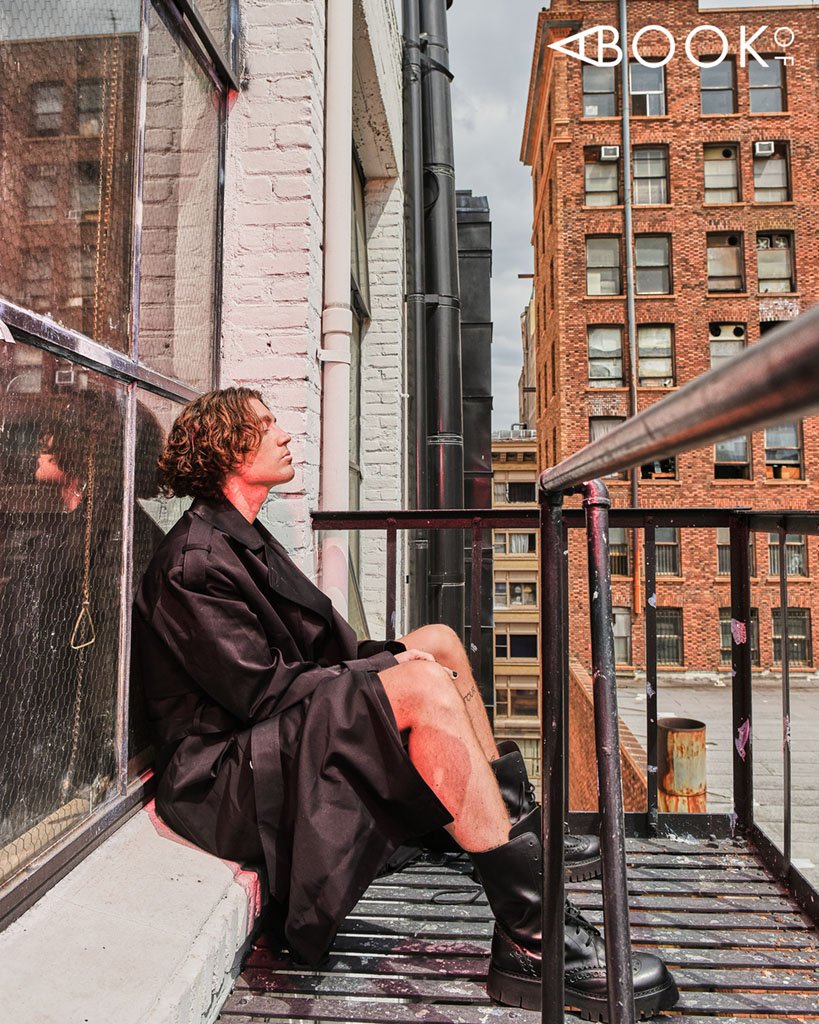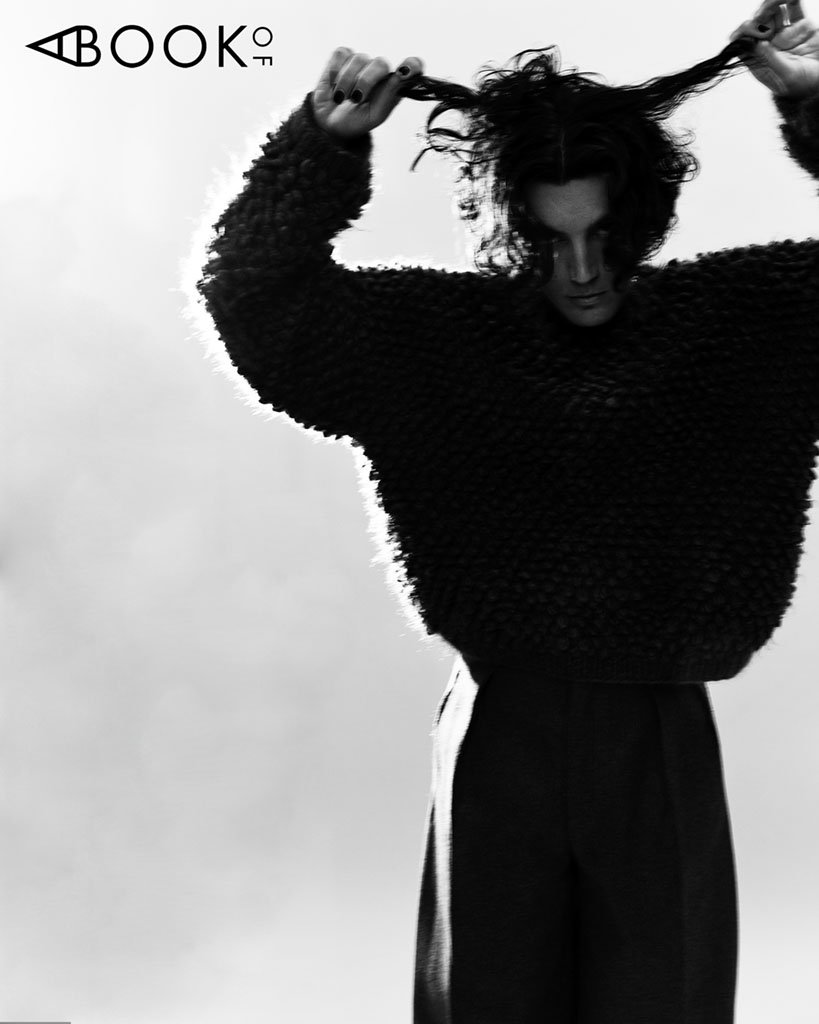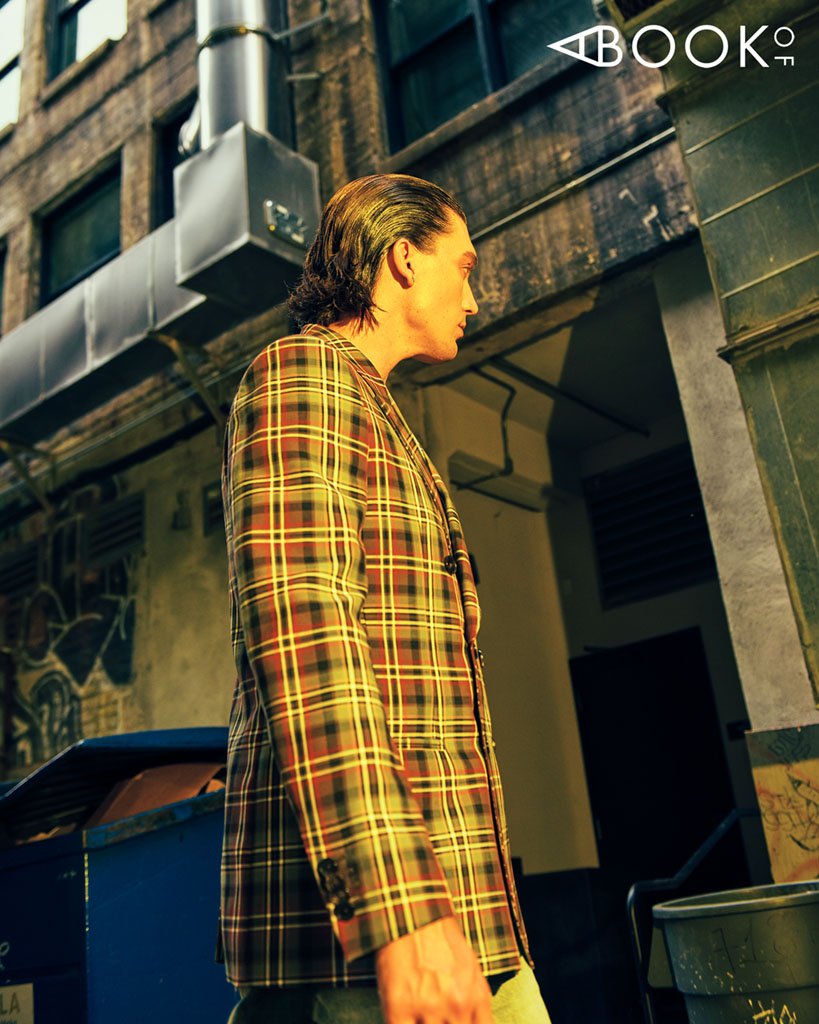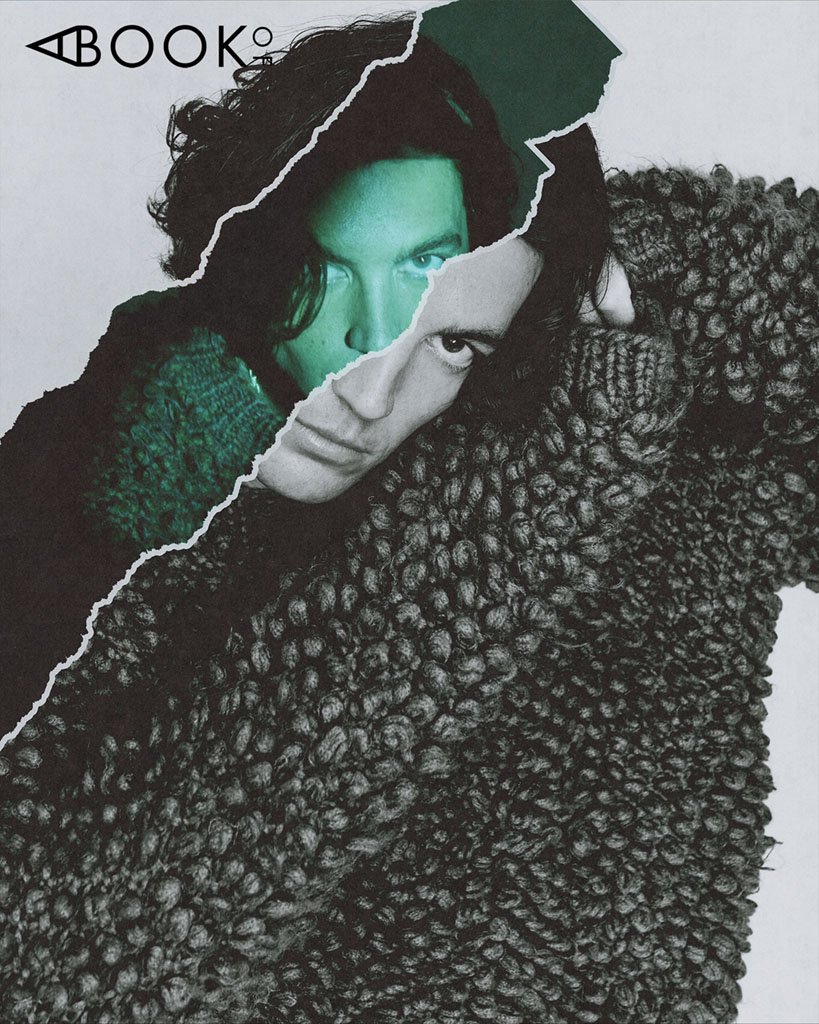PAUL JASON KLEIN: A BEAUTIFUL BLUR [IN PRINT]
INTERVIEW BY: KATARINA LA POLL
PHOTOGRAPHER: IRVIN RIVERA, FASHION STYLING: JACQUELINE TREVIZO, GROOMING: AYAE YAMAMOTO, PRODUCER: LOUISE BARRETTO, ART DIRECTOR: PHIL LIMPRASERTWONG, PHOTO ASST: JESSE ZAPATERO, MATTHEW GERETY, MOVING VISUALS: ARAMIS DURAN, STYLING ASST: DRE ROMERO, PR: THE ORIEL CO
Top & Bottom: ZEGNA, Shoes: PHILEO
Heartache and letting go. Faith and purpose. The beauty of solitude. A big ef you. All of this is here on LANY’s fifth album, "a beautiful blur.” The indie-pop band who gained momentum after anonymously uploading two songs to SoundCloud back in 2014 is now selling out arenas on several continents and gearing up for their Europe and North America tour. In “a beautiful blur,” LANY stretches their sound from what fans may be used to while retaining their musical identity. Some songs on their latest album carry us through cosmic-feeling synths and crunchy guitars while others rest solely on a piano melody and storytelling to carry its emotional resonance.
Despite growing up in the small town of Tulsa, Oklahoma not quite fitting in with the cowboy and football culture but instead being drawn to the arts, frontman Paul Klein held tight to his vision. This propelled him to drive out to Los Angeles to pursue a career in music and discover what he believes to be his purpose in this life.
I remember the first time I heard a LANY song. I was driving with my cousin who I grew up with but hadn’t hung out with in a long time. He turned and asked if I had heard of LANY. I hadn’t. “Oh you’re going to love them.” He played the song “if this is the last time,” and almost instantly I welled up with tears. My cousin laughed and said, “Bitch, stop, you’re gonna make me cry!” then replayed the song as we both teared up. It’s a song about family and those we love aging, a song about life flying by in the rear view mirror.
Listening through LANY’s discography it’s clear that wrestling with these kinds of intimate and shifting relationships comes naturally to Klein. He admits, “I think I wear my heart on my sleeve. And I think that's why people maybe really fuck with us.”
Klein indeed wears his heart on a sleeve as this fifth album explores various kinds of love. There’s romantic love, of course, but also other less-talked-about loves. There’s the complicated love/hate relationship of one’s own roots. The love of a hometown you aren’t always proud to claim. There’s love for a stranger. Love for someone in the same neighborhood navigating their own private pain. A love of the present moment. Even a love for one’s own inner world so strong it deserves its own landscape. On track 12, Klein names that inner world in its title “Alonica.” It’s a word he defines in the song’s music video as “a place within yourself where being you and having you is enough for you.”
The safety of this inner world can be vital for those who wield their private life into art for an audience and thereby expose themselves to both praise and criticism. Speaking to Paul, one might also find inspiration in his journey toward gaining the confidence to express himself, especially in front of crowds, and feeling deserving of LANY’s success.
Klein shares: “I think I will get to the end of my life and look back at these moments very, very fondly and be like, God, we were just grinding baby. We were just sitting at the kitchen table just doing our damn best, you know? And having no idea if it was any good or not, but just doing our best and with such a pure heart behind everything.”
And when he says the word “life” aloud, his Oklahoma roots are hard to miss, reminding me that even as a person bravely carves a new path, the pieces of one’s history and that which has shaped you, will always gleam through.
Images 1 & 5: Top & Bottom: ZEGNA, Shoes: PHILEO, Images 2 & 4: Top: JOHN VARVATOS, Bottoms: ZEGNA, Shoes: PHILEO, Image 3: Trench Coat: ALL SAINTS, Vest: TANNER FLETCHER, Shorts: ASK YOURSELF, Boots: MOSCHINO
How has your approach to songwriting changed from this album to previous ones if at all?
Well, first of all, I'm still figuring everything out. I don't have anything figured out. I'm still learning. But, you know, this is our fifth album and some things do work, and when they work, we continue to dive into them. And one process that we have is, I kind of enter a season of writing. I have normally just so many one-liners, song titles, sentiments, or thesis statements compiled in my notes app, and try to have as many as possible. And then I start going into rooms with one of my favorite other songwriters or by myself or there's other people that I've really wanted to work with that I've never worked with before, or people that I've built a lot of equity with over the years. And I'll go in and I really focus on the lyrics and melody. I never care about production. I don't care about what we're using, what synth or what drum sound. Every now and then there might be a drum sound that I hear at the beginning of a session, like, oh, that kind of inspires a mood. But ultimately I like to walk out of a room with nothing but the bare minimum skeletal structure of the song. Another way I'd describe it is like the lines in a coloring book. Just the lines is what I like to walk out of there with. ‘Cause I think that a great song can stand on its own, like with just a vocal and a piano or a vocal and guitar. And then what I'll do is I'll take all those songs, and normally I'm sending them to Jake immediately, but there does come a point where Jake and I sit down and we look at all the things that we have. I wrote 27 songs for this album, and we just listened one through 27 with Jake and Mike, our producer, and just criticized the crap out of these songs. And just be like, do we like this? Which ones are gonna stay?
Which ones are worthy of our time? And trying to fill in the lines to color in the lines of the song.
How do you know when one is working? That must have been hard narrowing it down to 13 songs.
Of course there's some that are just so obvious, right? Some that are just like, this has to go on there. And then there's some that maybe I like, but maybe Jake doesn't think belongs. There was one song that was on that list that Jake felt like was more reminiscent or reflective of the previous album, so we didn't include it. And, you know, nothing leaves the door of LANY without both Jake and my full approval. And also, we do have an amazing team that is small, but whether it's a song, it's an album title, it's an album art, it's a graphic, it's a photo, a band photo announcing an event, nothing leaves the door of LANY without full approval across the board. And so I think we've set up some sort of checks and balances within the ecosystem of LANY and really, I would probably say, I like to say it's a funny way of saying it, but Jake decides what goes on the album, you know, because if he doesn't like it, it's not going on there.
Top: JOHN VARVATOS, Bottoms: ZEGNA, Shoes: PHILEO
Were there any songs that surprised you in the writing of them?
Every song has its unique story. XXL was the first song that we wrote for this album. It's also track one on this album. I remember for instance, this song, I just kind of filled in the pre-chorus with some words that I knew were temporary. I wasn't exactly sure yet how I wanted to frame that pre- chorus, but the rest of the song was there. And I sent it to Jake and he was like, this is insane. Like, this is crazy. If this is the first song you're sending me for the new album, I cannot wait to dive into it more. And Out Of My League is track two. And I knew that I wanted to write a song called Out Of My League, and I had written the chorus just in my office, in my apartment on an acoustic guitar. So I walked into that session with the chorus already. That's always helpful if you’re doing something like that. But there's two songs on the album that weren't even originally there, we kind of finished the album and I said, “let me just go to Nashville. I'm gonna go spend three days with Sasha and Henry.” And they're two people that I love writing songs with. I think I just had a couple more ideas in the tank, and we wound up writing three songs in three days, and two of those songs wound up making the album. So I really like that approach. It's a new technique that we started doing on gg, the album before—where you go and finish the album and then you go and try to write some more just to see what happens. It's actually how Ed Sheehan wrote Shape of You. And it's just an interesting technique to just go push yourself and make sure that you're completely out of ideas.
I'm also curious about your philosophy in how you perform. When I watch you perform, you're just so free and alive in the way you express yourself. When you were younger, were there things that you were criticized about, like for the way that you dressed or your hair or your body or something that later influenced how you are now with your performance?
Totally. That's a great question. Yeah, I was constantly kind of poked and ridiculed for the way that I dressed. I did work on a ranch in high school but I did not really connect with the cowboy culture. And I didn't want to dress like that. There were a few cultures or like micro-cultures in Oklahoma, so if you don't play football…playing football, it's like, that's one of the number one things you can do in Oklahoma. And I didn't do that. In fact, instead of playing football, I was in this thing called “The Blue Crew," which was the head of our student spirit section. So that's the type of guy I was- like painting my face. I actually used to print a bunch of t-shirts and if our basketball team made it to state playoffs, we would make a state playoff t-shirt. I'd go print a bunch, and actually made quite a bit of money doing this in high school with my friend Brian Greg. But I was constantly kind of misunderstood when it came to my fashion decisions and things that I wanted to do. I also went to a school where I was really involved in theater and I remember like my voice cracking like going through puberty on stage and just being the butt of jokes. And it was really, really tough. I basically performed growing up in front of my high school, and that can be a brutal experience because you can be awkward and you still don't know who you are and you're trying to find yourself. So, I wasn’t very cool I guess to some people, but I thought I was, I guess, and I just stuck to my vision. But I kind of saw the path and where everyone was going and I didn't see myself going there with them whatsoever.
So now when you perform, I know you've said that you just show up like this is who I am. And you know, a lot of artists have to create a persona or maybe a mask just as a way to put themselves out there. Did anyone inspire you performance-wise or is this something that you came onto yourself?
Yeah. I struggled with that. I’ve never been like real arrogant or even real self-confident. My self esteem's always been basically on the floor just because I went through a lot of, and it sounds silly to say, but I got bullied so hard growing up and that kind of plays into Home Is Where the Hurt Is. I didn't have anyone in my corner being like, no, you're destined for greatness. I'll never forget this guy who was about six or seven years older than me. He is a very good family friend. I actually really looked up to him. In fact, in first grade, he was my sixth grade buddy and he was an incredible drummer. But then I think somewhere in his life, he kind of gave it up. And I'll never forget him sitting down on the couch in my own house saying, “when are you gonna give it up?” and I was still so young, like, what do you mean? Give it up? He literally told me to give up. I will never forget it. And I just remember feeling shocked and it almost made me upset. And I think I've just have always had a chip on my shoulder from all of those experiences growing up. So all that to say, even in Nashville not having much success, still trying to figure out, still trying and failing, I came into LANY once things started to work, and I still felt super insecure and self-conscious. It wasn't until, I'll never forget it, we played School Night at the Bardot in LA and it was completely filled to the brim and there were 400 people outside still trying to get in, and there was just something, I think I might've had like a shot of whiskey before I went up or something, but I'll never forget being up there and feeling like I don't care anymore if my voice cracks or if I embarrass myself, or if I trip, or if I hit a wrong note, I don't care anymore. There was something that switched inside me. I'm up here, I deserve to be up here. We've worked hard to be up here, and we're gonna sing.
Image 1: Trench Coat: ALL SAINTS, Vest: TANNER FLETCHER, Shorts: ASK YOURSELF, Boots: MOSCHINO, Images 2 & 3: Top & Bottom: ZEGNA, Shoes: PHILEO, Image 4: Blazer: ETRO, Bottoms: PURGATORY, Shoes: MOSCHINO
Can you talk a little bit about the title of your song Alonica?
The image that I had in my head before writing that song was like, being in the most magical, beautiful, almost mystical world. Like, literally, world. But you were the only one there. And you loved being the only one there. Like it was like a solo retreat, a solo trip. And I don't know if I'm alone, no pun intended, in thinking this, but it doesn't sound like the worst thing ever to go on a vacation by myself. It actually sounds lit. And I don't know what that means, but there was a period in my life where the thing that was hurting me the most was people. And I wanted to protect myself and I wanted to get away and heal. And some people really hate being alone. I think in the past, I didn't prefer it either. I've always appreciated my space a little bit, but to be fully alone for an extended period of time can be daunting, I guess. But in this phase of life, it felt like the best thing ever. It felt like a dream. And I wanted to write about that. I wanted to write about it because I think it's a journey that every human should probably go on if they are willing to, and if they are, I guess, brave enough. I think it's good when a human can go on a journey internally where they find self-sufficiency. Jake likes to use this metaphor a lot. Like when you're on an airplane and the oxygen masks drop, they tell you to put your mask on first before helping others. I love this metaphor because it's true. You need to be able to take care of yourself and love yourself in order to take care and love others. And that song, Alonica, basically touches on that. At first it was called Antarctica just because, that was in my head, no one's in Antarctica. Let's write about Antarctica like it's a tropical perfect place where the water's perfect for a midnight swim. And the stars and I are catching up like old friends. But I wound up changing it to Alonica because I thought that was such a strong title. And if we could attach a made up word to a made up place it would make the whole concept stronger.
Top & Bottom: ZEGNA, Shoes: PHILEO



